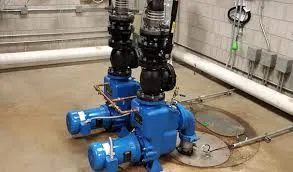English
- Afrikaans
- Albanian
- Amharic
- Arabic
- Armenian
- Azerbaijani
- Basque
- Belarusian
- Bengali
- Bosnian
- Bulgarian
- Catalan
- Cebuano
- Corsican
- Croatian
- Czech
- Danish
- Dutch
- English
- Esperanto
- Estonian
- Finnish
- French
- Frisian
- Galician
- Georgian
- German
- Greek
- Gujarati
- Haitian Creole
- hausa
- hawaiian
- Hebrew
- Hindi
- Miao
- Hungarian
- Icelandic
- igbo
- Indonesian
- irish
- Italian
- Japanese
- Javanese
- Kannada
- kazakh
- Khmer
- Rwandese
- Korean
- Kurdish
- Kyrgyz
- Lao
- Latin
- Latvian
- Lithuanian
- Luxembourgish
- Macedonian
- Malgashi
- Malay
- Malayalam
- Maltese
- Maori
- Marathi
- Mongolian
- Myanmar
- Nepali
- Norwegian
- Norwegian
- Occitan
- Pashto
- Persian
- Polish
- Portuguese
- Punjabi
- Romanian
- Russian
- Samoan
- Scottish Gaelic
- Serbian
- Sesotho
- Shona
- Sindhi
- Sinhala
- Slovak
- Slovenian
- Somali
- Spanish
- Sundanese
- Swahili
- Swedish
- Tagalog
- Tajik
- Tamil
- Tatar
- Telugu
- Thai
- Turkish
- Turkmen
- Ukrainian
- Urdu
- Uighur
- Uzbek
- Vietnamese
- Welsh
- Bantu
- Yiddish
- Yoruba
- Zulu
Telephone: +86 13120555503
Email: frank@cypump.com
Nov . 05, 2024 13:11 Back to list
'lift pump for septic system efficient solutions for wastewater ...'
Efficient Solutions for Wastewater Management Lift Pumps for Septic Systems
In the realm of wastewater management, particularly concerning septic systems, lift pumps play a crucial role. As urban development expands and the demand for effective sewage treatment rises, understanding the significance of lift pumps becomes increasingly important. This article will explore what lift pumps are, their operation within septic systems, and the efficient solutions they offer for waste management.
Understanding Lift Pumps
A lift pump is a mechanical device designed to elevate wastewater from lower to higher elevations, ensuring that it reaches treatment facilities or drainage fields when gravity alone cannot accomplish this task. These pumps are often utilized in areas where the natural topography poses a challenge for effective wastewater flow. By mechanizing the elevation of wastewater, lift pumps facilitate a more reliable and efficient sewage system.
The Role of Lift Pumps in Septic Systems
Septic systems, primarily used in areas without centralized sewage treatment plants, rely on the natural processes of soil filtration and bacterial decomposition to treat wastewater. However, when the building is situated below the level of the drain field or when the soil's capacity for absorption is low, additional systems must be incorporated. This is where lift pumps enter the equation.
In a conventional septic system, wastewater flows from the home into a septic tank, where solids settle to the bottom and are anaerobically digested by bacteria. The effluent is then released into a drain field for further treatment. However, in configurations where gravitational flow is insufficient, lift pumps transport effluent from the septic tank to the drain field. This ensures optimal functioning of the septic system and prevents backups or overflows, which can pose health risks and environmental hazards.
Efficient Solutions for Wastewater Management
'lift pump for septic system efficient solutions for wastewater ...'

1. Reliable Operation Modern lift pumps are engineered for durability and efficiency. By utilizing high-quality materials and advanced technology, these pumps offer reliable performance with minimal maintenance. Regular assessments and maintenance schedules can further enhance their longevity, ensuring that homeowners avoid costly repairs and downtime.
2. Energy Efficiency One of the most pressing concerns related to wastewater management is the energy consumption associated with pumping systems. Recent advancements in pump technology have led to the development of energy-efficient lift pumps that minimize operational costs while still providing peak performance. These energy-saving solutions not only reduce electricity bills but also promote environmentally sustainable practices.
3. Smart Technology Integration The integration of smart technologies into lift pump systems has revolutionized wastewater management. Advanced sensors can monitor the pump's performance and send alerts to homeowners regarding any disruptions or maintenance needs. Such real-time data allows for proactive measures, reducing the likelihood of system failures and ensuring optimal operation.
4. Scalability and Adaptability The flexibility of lift pump systems allows them to be adapted to various residential and commercial applications. Whether it's a small household septic system or a larger-scale operation, lift pumps can be tailored to meet specific needs, making them an efficient solution for diverse wastewater management challenges.
5. Environmental Protection An efficient lift pump system not only ensures the proper treatment of wastewater but also protects the surrounding environment. By preventing backups and ensuring that effluent is appropriately filtered through the drain field, lift pumps play a vital role in safeguarding local water sources from contamination.
Conclusion
In conclusion, lift pumps are essential components of septic systems, especially in terrains where gravity cannot facilitate wastewater flow. Their efficient design, reliability, and adaptability offer a myriad of advantages in wastewater management. By embracing modern technologies and energy-efficient solutions, homeowners and businesses can improve their sewage systems' performance while contributing to environmental sustainability. As we move forward in addressing the complexities of wastewater management, lift pumps will undoubtedly remain a cornerstone of effective solutions in septic systems.
-
ISG Series Vertical Pipeline Pump - Chi Yuan Pumps Co., LTD.
NewsJul.30,2025
-
ISG Series Vertical Pipeline Pump - Chi Yuan Pumps Co., LTD.|energy-efficient fluid handling&industrial durability
NewsJul.30,2025
-
ISG Series Vertical Pipeline Pump - Chi Yuan Pumps | Advanced Engineering&Industrial Efficiency
NewsJul.30,2025
-
ISG Series Pipeline Pump - Chi Yuan Pumps | High Efficiency, Energy Saving
NewsJul.30,2025
-
ISG Series Vertical Pipeline Pump-Chi Yuan Pumps|High Efficiency&Reliable Performance
NewsJul.29,2025
-
ISG Series Vertical Pipeline Pump|High Efficiency&Low Noise
NewsJul.29,2025










